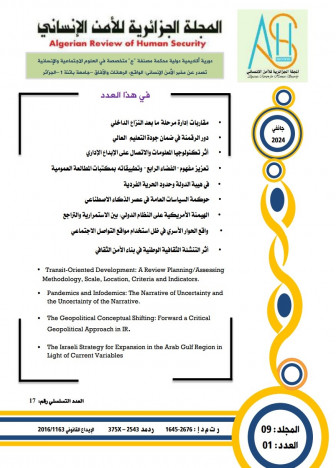Underlying in Organizational Citizenship Behavior
DOI:
https://doi.org/10.59791/arhs.v9i1.3802Keywords:
Organizational citizenship behavior, Discretionary behaviour, Compulsory citizenship, Job creepAbstract
Most organizations seek to achieve a competitive advantage by possessing modern technological resources to save time and keep pace with changes, but in contrast, we find that the human resource represents one of the most important resources that cannot be replaced or imitated because it serves as an added value. Achieving organizational effectiveness, as Katz and Khan argued, requires employees to go beyond the job roles required of them, which represent the apparent and voluntary aspect of organizational citizenship behavior. However, in many cases, excessive involvement in these behaviors is one of the hidden and negative factors that affect the well-being of individuals, so that behavior of a discretionary and automatic nature becomes obligatory behavior imposed by organizations, and thus the good soldier and good servant, in Organ’s words, is transformed into an obedient machine in the hands of the organization that works to exploit him and exhaust his time and effort to achieve its organizational goals. Based on the above, we seek, through this research paper to shed light on the hidden side of this behavior and highlight the most important motives and factors behind its imposition and the strategies that limit the risk of the gradual expansion of compulsory organizational citizenship





